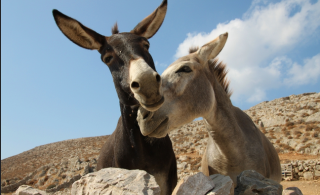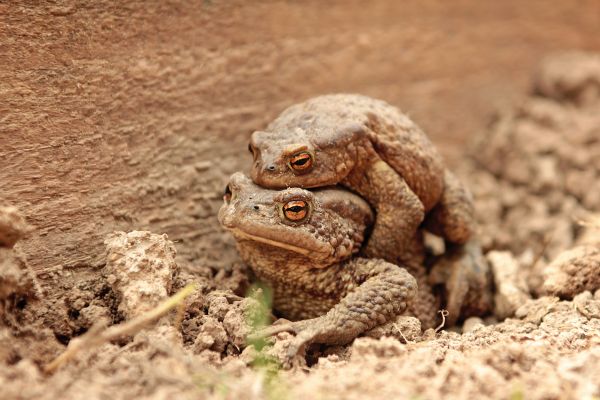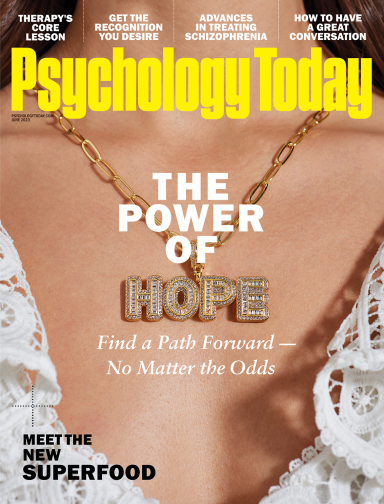Relationships
The Many Definitions of Love
What is and isn't love, according to the relationship experts.
Posted February 9, 2015

L'amour. Liebe. Sarang. Ai. Hubb. Love.
There may be just one word for love in every language, but there are myriad meanings. It just depends on who you ask. See below for some of the most interesting definitions I've found.
Love is not "falling in love."
"Our most basic emotional need is not to fall in love but to be genuinely loved by another, to know a love that grows out of reason and choice, not instinct. I need to be loved by someone who chooses to love me, who sees in me something worth loving.
That kind of love requires effort and discipline. It is the choice to expend energy in an effort to benefit the other person, knowing that if his or her life is enriched by your effort, you too will find a sense of satisfaction -- the satisfaction of having genuinely loved another. it does not require the euphoria of the in-love experience. In fact, true love cannot begin until the in-love experience has run its course."
- Gary D. Chapman, The Five Love Languages
Love is not happiness.
"If you take your happiness and put it in someone's hands, sooner or later, she is going to break it. If you give your happiness to someone else, she can always take it away. Then if happiness can only come from inside of you and is the result of your love, you are responsible for your happiness. We can never make anyone responsible for our happiness..."
- Don Miguel Ruiz, The Mastery of Love
Love is your dog.
"You know, it's easy to love your dog because your dog doesn't have opinions about you. The dog loves you unconditionally. This is important. Then if your partner loves you just the way you are, it is jut like the dog loves you. You can be yourself with your partner; you can be a man, or you can be a woman, just the way the dog can be a dog with you."
- Don Miguel Ruiz, The Mastery of Love
Love is not actually you think it is.
"What we call love -- someone who needs me, someone who cares about me -- isn't love; it is selfishness. How can that work? Selfishness doesn't work because there is no love there. Both people are starving for love. In the sex they have, they taste a little love and it becomes addictive because they are starving for love. But then all the judgments are there. All the fear. All the blame. All the drama."
- Don Miguel Ruiz, The Mastery of Love
Love is a mirror for who we want to be.
"I have stressed the fact that the beloved person is a substitute for the ideal ego. Two people who love each other are interchanging their ego-ideals. That they love each other means they love the ideal of themselves in the other one. There would be no love on earth if this phantom were not there. We fall in love because we cannot attain the image that is our better self and the best of our self. From this concept it is obvious that love itself is only possible on a certain cultural level or after a certain phase in the development of the personality has been reached. The creation of an ego-ideal itself marks human progress. When people are entirely satisfied with their actual selves, love is impossible. The transfer of the ego-ideal to a person is the most characteristic trait of love.
- Theodor Reik, Of Love and Lust
Love is insanity.
"Falling in love automatically tends toward madness. Let to itself, it goes to utter extremes. This is well known by the 'conquistadors' of both sexes. Once a woman's attention is fixed upon a man, it is very easy for him to dominant her thoughts completely. A simple game of blowing hot and cold, of solicitousness and disdain, of presence and absence is all that is required. The rhythm of that technique acts upon a woman's attention like a pneumatic machine and ends by emptying her of all the rest of the world. How well our people put it: 'to suck one's sense'!"
- José Ortega y Gasset, On Love: Aspects of a Single Theme
Love is a more powerful than sex.
"I think it's more powerful than the sex drive. You know, if you ask somebody to go to bed with you, and they say, 'No, thank you,' you certainly don't kill yourself or slip into a clinical depression. But certainly, around the world, people who are rejected in love will kill for it. People live for love. They kill for love. They die for love. They have songs, poems, novels, sculptures, paintings, myths, legends. In over 175 societies, people have left their evidence of this powerful brain system. I have come to think it's one of the most powerful brain systems on earth for both great joy and great sorrow."
- Dr. Helen Fisher, TED Talk
Love is the foundation of our existence.
"The need for love lies at the very foundation of human existence. It results from the profound interdependence we all share with one another. However capable and skillful an individual may be, left alone, he or she will not survive. However vigorous and independent one may feel during the most prosperous periods of life, when one is sick or very young or very old, one must depend on the support of others."
Even Russian President Vladimir Putin agrees.
Love isn't passion.
"We may love our partners deeply, idolize them, and even be willing to die for them, but these feelings rarely translate into long-term passion. And studies show that in long-term relationships, women are more likely than men to lose interest in sex, and to lose it sooner. Why? Because women’s idea of passionate sex depends far more centrally on novelty than does men’s."
- Sonja Lyubomirsky, Professor of Psychology at University of California, Riverside
What's your take on love?
Follow me on Twitter: @thisjenkim
Want to get an update when I write a new post? Sign up here.




























